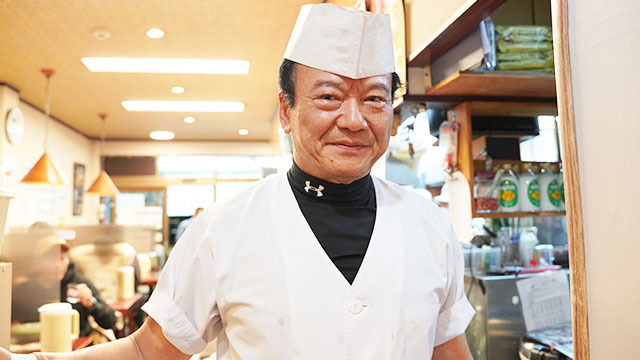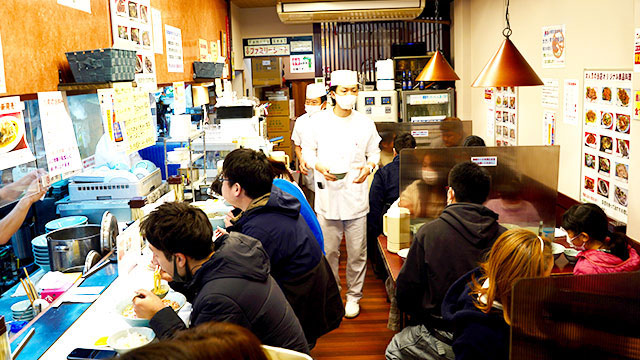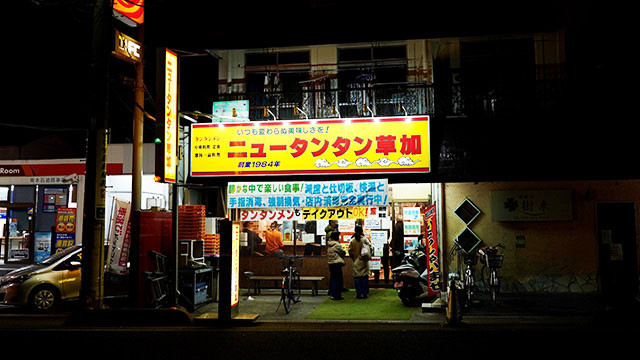The request came into effect in January, and has been widely followed. But the owners of some establishments have made considered decisions to stay open later.
The operator of a Chinese restaurant in Soka City, Saitama Prefecture, says his customers come first. Yang Sanggoo's restaurant has been open for 37 years in an industrial suburb. Its usual hours are 6 p.m. to 2 a.m., and it services factory workers and long-distance truck drivers. "After coming home late from work, I don't have the energy left to cook," says one customer. "I appreciate that this place is open until late at night."
Yang, 67, decided to keep the restaurant open after 8 p.m.

He implemented stringent infection prevention measures, including temperature checks and hand sanitization at entry, and partition boards on the tables. Customers were asked not to talk while eating and to leave promptly once they had finished their meal.
"I didn't want to inconvenience my customers who come late at night," explains Yang. "Many restaurants were already taking appropriate measures to prevent infections, so I do not understand why the authorities have pointed the finger at restaurants, as if they were the only infection sources."
He placed notes on the tables, explaining why the restaurant was continuing its normal operating hours and outlining its infection prevention measures. One customer posted a photo of the note on Twitter, accompanied by a comment, "This is a perfectly reasonable argument." The tweet attracted nearly 7,000 likes.
Yang had a rethink after Japan's government introduced fines for establishments that were flouting the early closure rules. The penalty can be up to 300,000 yen, about $2,800. Starting February 16, he stopped dine-in service at 8 p.m. and introduced a takeout operation from 8 p.m. to 10 p.m.
Restaurants that have shortened their business hours in accordance with the state of emergency requirements can qualify for financial aid of 60,000 yen, about $550, per day. For Yang, that's not enough to cover the drop in sales.
"I think the government should provide flexible support according to each situation, instead of imposing blanket rules," he says.

The state of emergency was set to expire on March 7, but Japan's government extended it by two weeks. It is the second time the deadline has been pushed back since the declaration came into effect in January. Yang decided to get back to business, resuming normal hours from March 8.
He says he has received dozens of phone calls from customers urging him to reinstate the regular schedule. The factories around the restaurant are running normal hours, and many of the workers are clocking out at midnight.
"I don't know if my choice is right," says Yang. "But I had to make a call. It's not clear how long this state of emergency is going to last, and we can't allow customers to be inconvenienced any longer. I'm prepared to pay a penalty."

